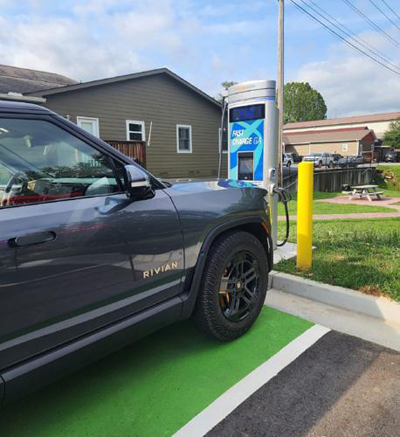While Georgia officials dole out billions in taxpayer-backed incentives for manufacturers of electric vehicles and related components, the state's cities don't rank particularly high in a nationwide analysis of the best cities to own an electric car.
Roof Gnome's new ranking of 2023's Best Cities to Own an Electric Car found Macon was the seventh worst city for electric vehicle owners---and 194th overall. Atlanta ranked 112th out of the 200 cities on the list and fared the best of any Georgia city.
Augusta ranked 178th, Columbus came in at No. 162, and Savannah was 149th.
A spokesperson for the study told The Center Square its sample includes the 200 largest cities across the country. Georgia cities on the list all ranked 158th for the metric weighing EV Laws and incentives, the spokesperson said.
"It looks like the incentives offered in Georgia are newer than those in most other states and haven't all been fully implemented," the spokesperson said. "This is likely a reason why the Georgia cities are ranking where they are, and I suspect they should rank higher next year."
However, there are a few bright spots for the Georgia cities.
Atlanta ranks third for the number of EV charging stations per 100,000 residents. Savannah ranks ninth for the number of hybrid car repair shops per 100,000 residents, while Macon topped the list for the fewest motor vehicle thefts per 10,000 residents.
Earlier this year, Georgia ranked 32nd for its progress on transportation electrification in the American Council for an Energy-Efficient Economy's 2023 State Transportation Electrification Scorecard, which assesses states' policies to promote electric vehicle adoption.
Last year, the Federal Highway Administration signed off on Georgia's National Electric Vehicle Infrastructure Plan. With the approval, the Georgia Department of Transportation could start planning how the state will spend roughly $130 million to pay for electric vehicle charging infrastructure over the next five years.












